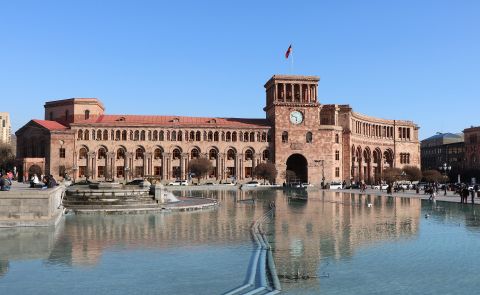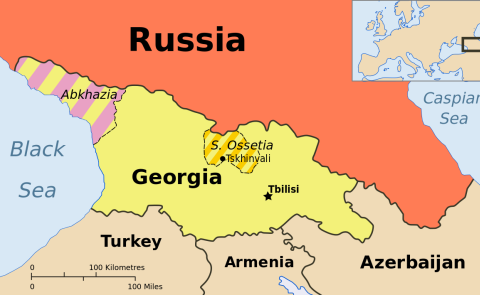
Robert Kocharyan Reacts to Pashinyan's Blames Against Him

On June 21, the office of Robert Kocharyan, the second President of Armenia, reacted to Armenian Prime Minister Nikol Pashinyan's accusations against his predecessors, including Kocharyan himself, regarding the negotiation process to resolve the Karabakh conflict.
The office of the ex-president indicated that Nikol Pashinyan, possibly understanding where he led Armenia and Karabakh, is trying to shift the blame on others in all possible and impossible ways. They recalled that the [de-facto] representatives of [the separatist] Nagorno-Karabakh ceased to participate in the negotiations under the auspices of the co-chairs of the OSCE Minsk Group (Russia, France, and the United States) in 1997, that is, before Robert Kocharyan took the post of President of Armenia. "So, in April of the same year, international mediators announced shuttle diplomacy and abandoned the format with the parties' participation in the conflict, considering it ineffective. By that time, direct negotiations had already been underway between the advisers to the leaders of Armenia and Azerbaijan, Gerard Libaridian and Vafa Guluzade [during the presidency of Levon Ter-Petrosyan], for a year and a half," the report added.
The commentary of the press service of the ex-president also stated that until 2018, the OSCE Minsk Group co-chairs visited Nagorno-Karabakh on almost every regional visit, and after 2018, i.e., Pashinyan came to power, they were not there either. Further, in response to the fact that Robert Kocharyan allegedly agreed to the implementation of the idea of a "Common State," then, as explained in the office of the ex-president, this was the Russian version, first proposed to Azerbaijan and then sharply rejected by it. Thus, the Armenian side could not even participate in such discussions.
Speaking about the "Meghri version" of the exchange, Kocharyan's office indicated that, in fact, the author of the proposal was the ex-president of Azerbaijan, Heydar Aliyev, and the Armenian side rejected this proposal.
"According to the document discussed in 2001 in American Key West, Nagorno-Karabakh, along with the Lachin corridor, joined Armenia; in return, Azerbaijan received a land connection with the Nakhichevan Autonomous Republic through Armenia, and not a corridor, but a road," Kocharyan's office stressed. Summarizing, the authors of the statement note that during the period of Kocharyan's presidency, not an inch of land was handed over to the enemy; these ten years were the most peaceful and calm in the recent history of the country's independence, Nagorno-Karabakh was experiencing rapid development, and it never occurred to Azerbaijan that unleash aggression against Armenia and Nagorno-Karabakh and go unpunished.
As previously reported by Caucasus Watch, at a meeting of the commission to investigate the circumstances of the 44-day war in the fall of 2020, the head of government, in particular, stated that the former Armenian leaders had led the negotiations to a dead end, ousted Nagorno-Karabakh from the peace process, and agreed to negotiate in the logic of the territorial integrity of Azerbaijan, allowed Azerbaijan to better prepare for war. Some of the accusations were addressed to the second president of the republic - in what, according to Pashinyan, related to Stepanakert's ousting from the negotiation process.
See Also

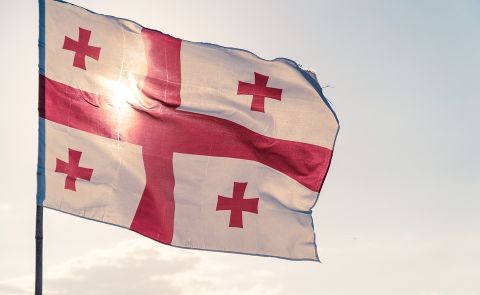
Georgian Bishop Accuses Government Official of Plotting Assassination; Opposition Leader Alleges Husband’s Abduction
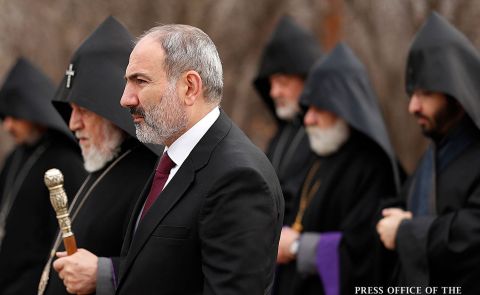
Armenian Government and Church Face Growing Tensions Over Leadership Allegations
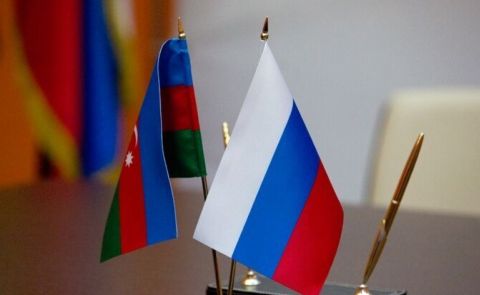
Tensions Rise Between Russia and Azerbaijan Over Medinsky’s Ukraine Conflict and Karabakh Remarks
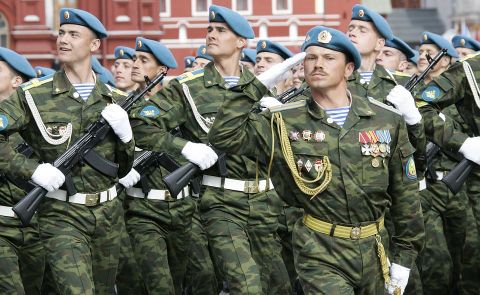
Chechen Official Outlines Conscription Rules for Russia-Ukraine War
